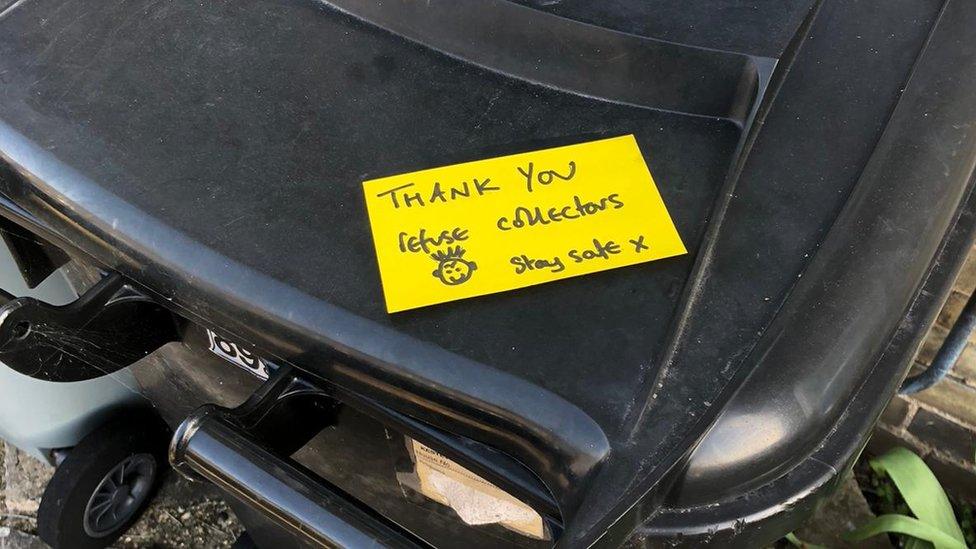Covid: Figures show pre-pandemic fly-tipping rise across England
- Published
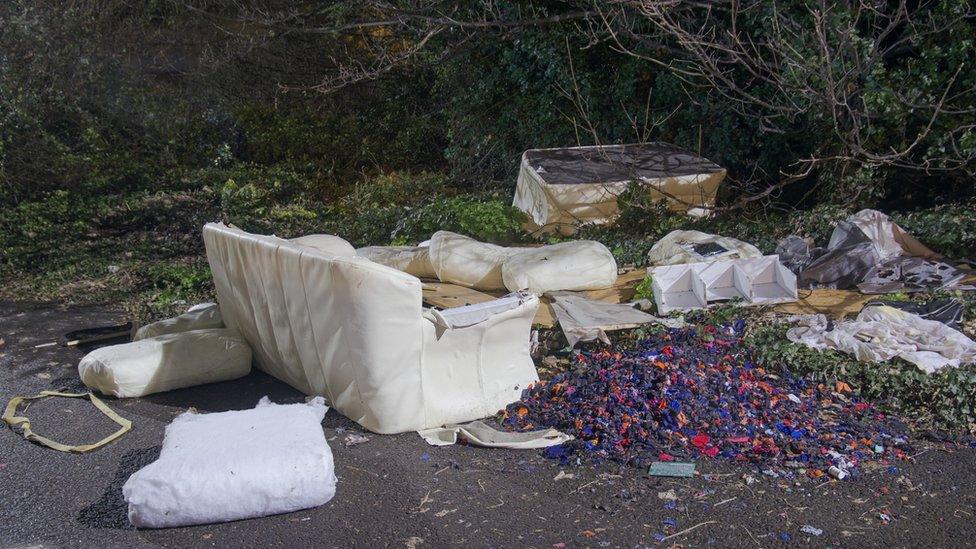
Councils fear lockdowns brought on by the coronavirus pandemic may have led to a rise in fly-tipping
Councils in England dealt with more than 976,000 instances of fly-tipping in the year up to the start of the coronavirus pandemic, figures show.
It was a 2% rise on the 950,000 incidents in 2018-19, with just under two thirds made up of household waste.
The most common places for the illegal dumping of waste were on roads and pavements.
Local authorities have said efforts to tackle fly-tipping had been "limited" by the coronavirus pandemic.
Many waste facilities closed in late March 2020 after Prime Minister Boris Johnson said people should stay at home, except for essential travel.
This prompted calls in April for tips to be reopened after councils observed a surge in fly-tipping.
The latest figures, released by the Department for Environment, Food & Rural Affairs (Defra), cover incidents in the 12 months to the end of March 2020.
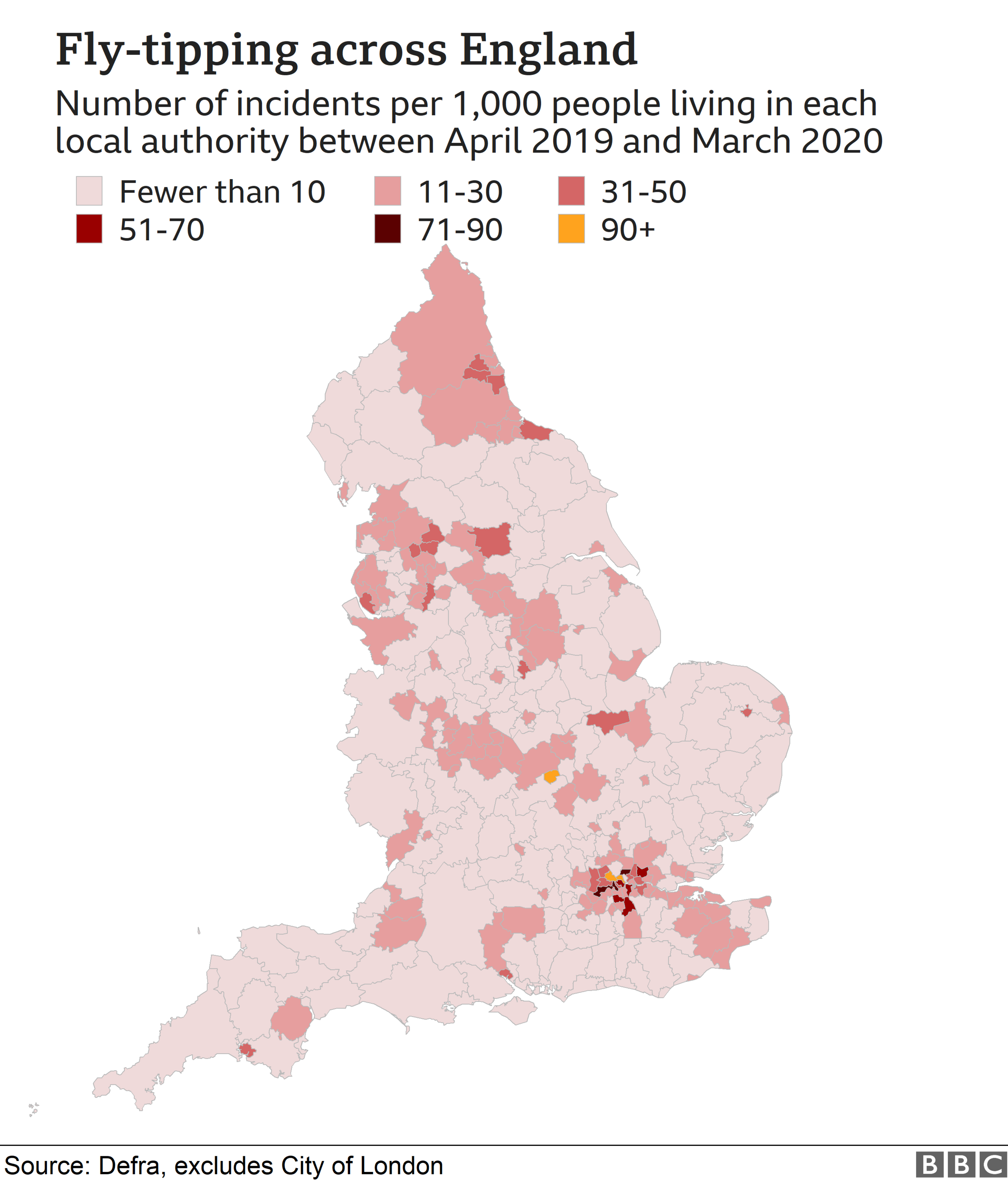
'Thoughtless'
Several days after the first national lockdown began, George Savva, a councillor in the London borough of Enfield, said "thoughtless" fly-tippers had dumped a sofa and other household items by the side of the road in his area.
"The actions of some people take us back to the dark ages," he said at the time. "It is not compatible with the way we want to go ahead and beat the virus. It stops people doing essential work."
Enfield saw reported fly-tipping fall from 5,164 to 4,979 in the year to March 2020.
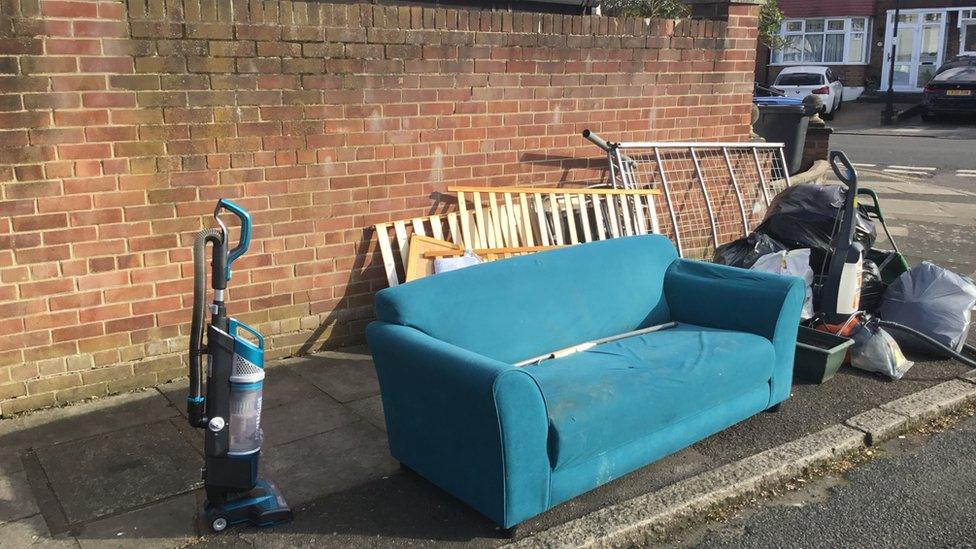
Mr Savva said people struggled to dispose of bulky household items during the first lockdown
Looking back, Mr Savva said the impact of the pandemic on fly-tipping was most noticeable during the first lockdown, as people were not able to dispose of bulky items.
However, he said many "responsible" people held on to their rubbish until the tips reopened later in the year with time slots and social distancing.
The latest figures suggest Camden, in London, saw the highest rate of fly-tipping incidents in England, with 128 sites reported across the year for every 1,000 people living in the borough.
This was followed by Brent, another London borough, at 104 sites per 1,000 people and Northampton, at 92 per 1,000.
The District Councils' Network, which represents lower-tier authorities across England, said the most recent figures did not reflect the "full impact" of the pandemic, which councils fear has "driven an even sharper increase" in fly-tipping.
'Wage war'
Councillor Dan Humphreys, from the network, said: "District councils have been doing what they can during the pandemic to clear up fly-tipping and keep our communities clean, but this action has been limited somewhat as a result of efforts to tackle coronavirus."
He added the government needed to make sure local authorities had "funding certainty" as the country comes out of the pandemic so councils could "wage war" on fly-tippers.
However, Mr Humphreys also said sentencing guidelines should be reviewed so courts could "get tougher" on fly-tippers.
The number of court fines issued for fly-tipping increased by a third in the last year, according to the latest figures, from 2,056 to 2,671, with a total value of £1.17m. Two of these fines were in the highest bracket of more than £50,000.
The Local Government Association said fly-tipping costs taxpayers almost £50m a year to clear up.
A spokesman urged manufacturers to provide more "take-back services" for people to dispose of bulky items, like old furniture.
Environment Minister Rebecca Pow said fly-tipping was "unacceptable" and the government was "committed to tackling waste crime".
"Everyone has a legal duty of care when handling waste, and all householders and businesses must ensure that they pass their waste to licensed carriers, as failure to do so could result in a £400 fine," she added.
- Published13 February 2021
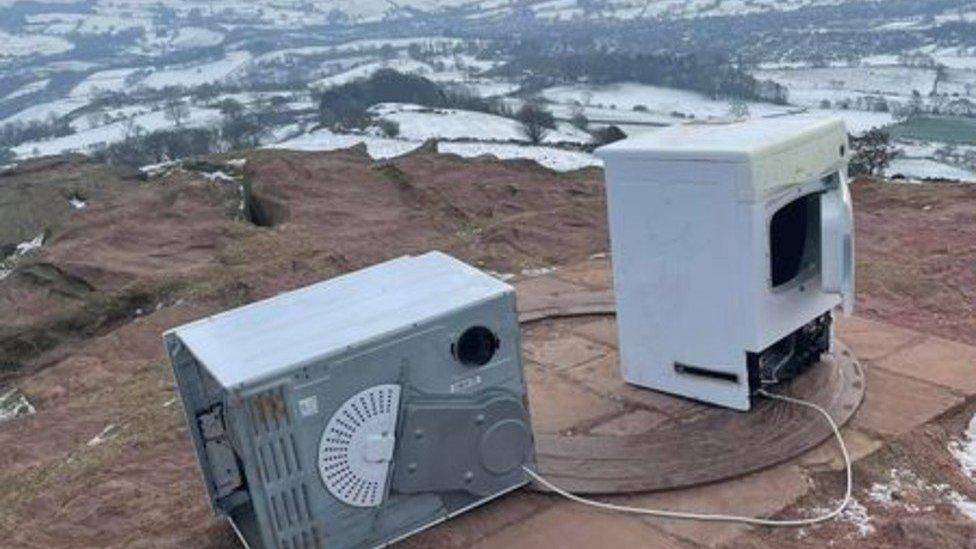
- Published15 October 2020
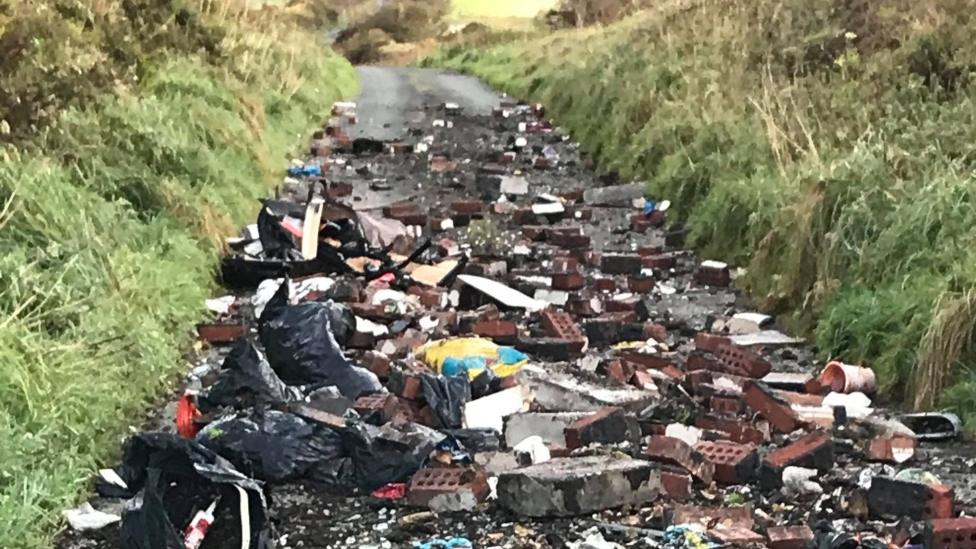
- Published9 October 2020
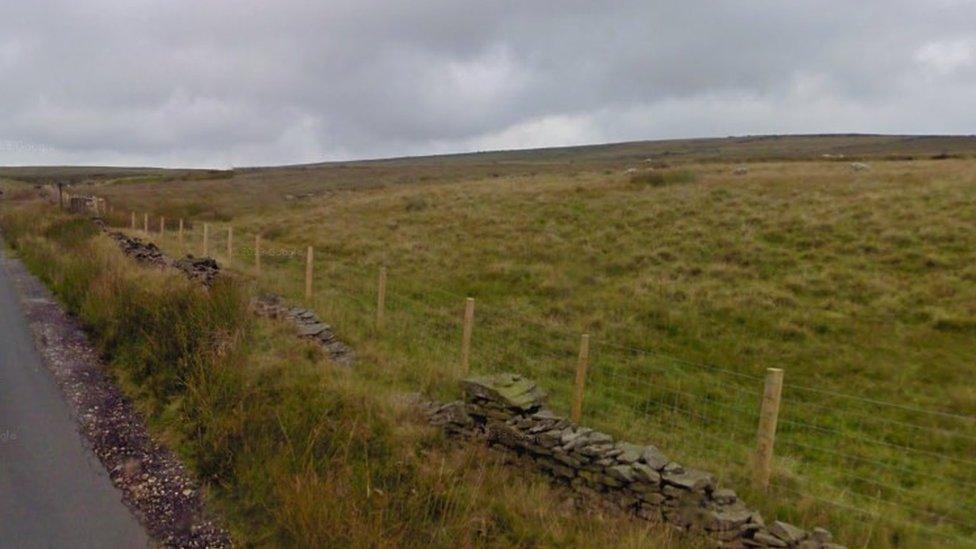
- Published17 April 2020

- Published24 March 2020
